In Myanmar, Karen Rebels Deny Signing a Cease-Fire By THOMAS FULLER
TAY BAY HTA, MYANMAR
— When Myanmar announced a cease-fire last month with one of the
country’s most prominent rebel groups, images of longstanding enemies
shaking hands across a table were beamed around the globe and touted as
evidence of further reconciliation in a country emerging from decades of
military dictatorship and interethnic strife. Read more...
Now, three weeks after the deal was announced, the leadership of the
rebel group is denying that a cease-fire was signed.
“We can’t say there’s a cease-fire yet,” Naw Zipporah Sein, the general
secretary of the Karen National Union, said in an interview. “We still
need to discuss the conditions.”
There have been no reports of clashes between Karen rebels and
government troops in recent weeks. But the defiant stance of the Karen
leadership appears to be a significant setback for the government’s
efforts to end the grinding civil conflicts that have divided the
country for decades.
Reconciliation with the country’s armed ethnic groups has been one of
the conditions that the United States and other Western countries have
put on Myanmar before economic sanctions and other punitive measures are
lifted.
The day after the cease-fire announcement, Hillary Rodham Clinton, the
U.S. secretary of state, said that the United States would reward
“action with action” and announced that Washington would appoint an
ambassador to Myanmar after more than a decade without one. She called
the cease-fire an “important step forward” for the country.
The confusion over the cease-fire remains murky and appears to be a mix
of misunderstanding and backpedaling by the rebel group’s leadership.
Ms. Sein said the delegation sent to negotiate with the government was
not authorized to sign a cease-fire. A document was signed, but all that
was agreed upon in January, she said, was that the two sides would
“meet again” at the end of February. She declined to release a copy of
the agreement.
Top officials of the Karen National Union, a cash-strapped organization
with a ragtag army of several thousand troops, also admit that they
underestimated opposition from the organization’s rank and file to a
deal with the government.
“The grass roots are very much concerned that it went too quickly — they
thought it was a sellout,” said Saw David Tharckabaw, vice president of
the Karen National Union and chief of its foreign affairs section.
“There is a feeling that we have been cheated.”
The organization must now “move more slowly” in dealing with the
government, Mr. Tharckabaw said. He portrays the cease-fire announcement
in January as part of a public relations campaign by the government for
the benefit of foreign nations.
“The government wanted to show the world that the longest-running war
between the government and a rebel group was over,” Mr. Tharckabaw said.
He said the Karen delegation came under “high pressure” to sign an
agreement.
The government of President Thein Sein has pushed ahead with a raft of
changes in recent months, including the release of hundreds of political
prisoners and a loosening of restrictions on the news media.
But ethnic strife remains a key challenge, one that has dogged Myanmar,
also called Burma, from the first days of independence in 1948. E-mails
to Mr. Thein Sein’s office seeking comment on the status of the Karen
cease-fire were not answered.
About one-third of Myanmar’s population are members of minority groups
arrayed along the borders with Bangladesh, India, China and Thailand.
In the impoverished hills that make up the Karen homeland, tensions
persist between rebels and government troops, according to Bo Aung Hang,
a battalion commander in charge of a region along the Moei River, which
separates Myanmar from Thailand. The area is strewn with land mines.
In Tay Bay Hta, a hamlet along the river without electricity or running
water or roads, there is a palpable pessimism that is in stark contrast
to the rekindled hopes for democratic reforms in some of Myanmar’s
biggest cities. The mood here is for defiance, not reconciliation.
During a ceremony this week to commemorate 63 years of fighting against
the central government, Mr. Bo Aung Hang told an assembled group of
about 150 villagers that the Burmese Army wanted to “eliminate the Karen
people.”
“All that will remain of the Karen is a picture in a library,” he said.
As he spoke, rebel soldiers stood guard, carrying a variety of assault rifles and a grenade launcher.
“Over the past 10 years, 40 soldiers have been killed in my battalion,”
Mr. Bo Aung Hang said. “Those of us still alive are still leading the
revolution.”
Rebels call the central government the “enemy.”
The leadership of the Karen National Union said that no date had been
set for the next meeting with the government but that they are ready to
respect the deadline and convene before the end of this month.
The organization has submitted a sweeping list of 11 demands, including a
call for a simultaneous cease-fire encompassing all ethnic groups.
(Fighting has flared in recent weeks between ethnic Kachin rebels and
the government along the border with China.)
Mr. Tharckabaw, the vice president of the Karen National Union,
summarizes the Karen demands as wanting “equality and
self-determination.”
“In short, we want a genuine federal system where the states will have their own autonomy,” he said.
Villagers who over the last few decades have been in the cross-fire of
one of Asia’s longest-running conflicts, are skeptical that a deal can
be reached, said Bothien Thientha, a long-serving officer in the Karen
National Liberation Army who was wounded in a battle with a
pro-government militia two and a half years ago.
“No one trusts the government,” he said. “We’ve been cheated so many times.”





















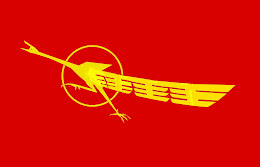





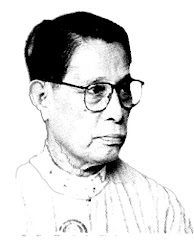


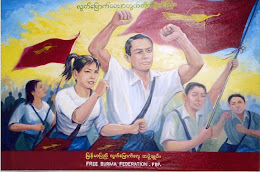





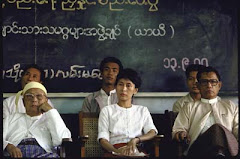

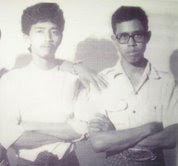

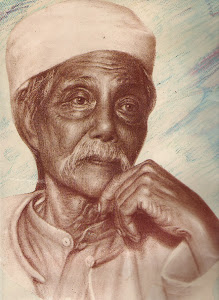
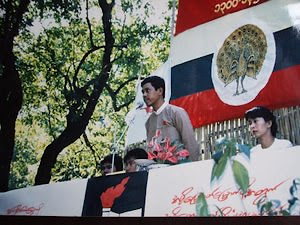
1 comment :
I can guess that Moe thee will happy with this news. Coz if Myanmar become peaceful democratic country, Moe thee's financial sources will dried out. unless shouting nonsenses, moe thee know nothing.
Post a Comment